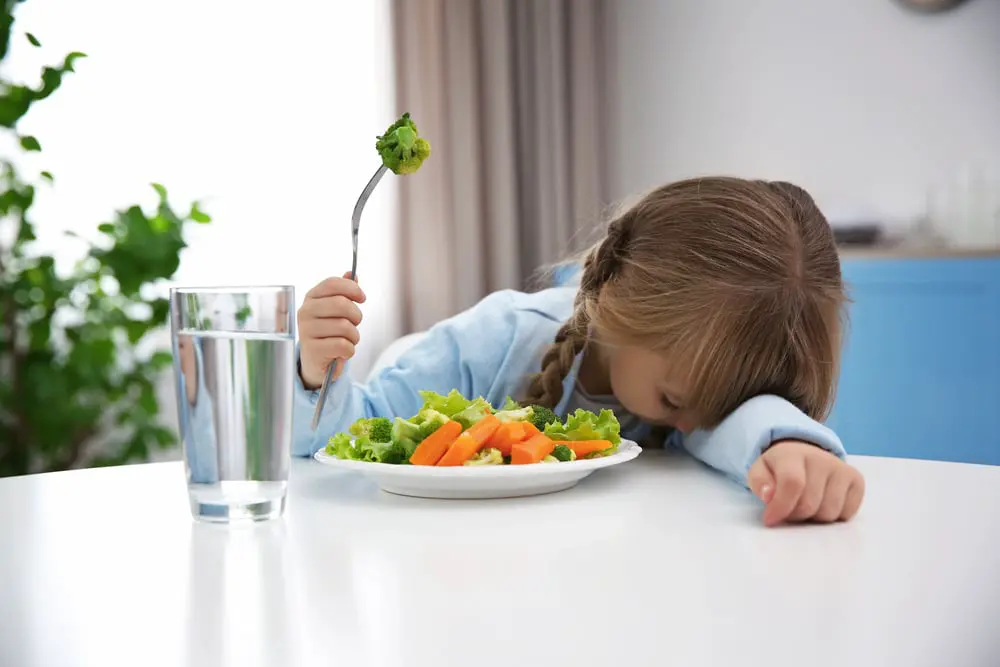When it comes to feeding kids, there’s no shortage of advice — and not all of it is accurate. From internet influencers to well-meaning friends and family members, everyone seems to have an opinion. But with so much information out there, it’s easy for myths to spread. To clear things up, we’ve gathered insights from experts to debunk some of the most common childhood nutrition myths. Let’s separate fact from fiction and see what childhood nutrition myths can be debunked by exerts.

Debunked Myth #1: Kids Need to Clean Their Plate to Be Healthy
Many of us grew up with the “clean your plate” rule, but experts now know that this approach can backfire. Forcing kids to finish their food teaches them to ignore their body’s hunger and fullness signals, which can lead to overeating and weight issues later in life. According to the American Academy of Pediatrics (AAP), kids are better off learning to listen to their own bodies. Instead of requiring a clean plate, encourage kids to take small portions and ask for more if they’re still hungry. This promotes a healthy relationship with food and helps them learn to self-regulate.
Debunked Myth #2: Sugar Makes Kids Hyperactive
This childhood nutrition myth has been around for decades, and while it seems logical, research says otherwise. Numerous studies, including one from the National Institute of Mental Health, have found no link between sugar consumption and hyperactivity in children. Kids often get hyper around birthday parties and holidays, which usually involve sugar, but it’s the excitement of the event — not the sugar — that makes them bounce off the walls.
That said, limiting added sugars is still essential for other health reasons. High-sugar diets can increase the risk of obesity, dental problems, and type 2 diabetes. The takeaway? Sugar might not make kids hyper, but it’s still best to offer it in moderation.

Debunked Myth #3: Juice Is a Healthy Choice
Juice has been marketed as a health food for kids, but it’s actually loaded with sugar and lacks fiber. Even 100% fruit juice can lead to spikes in blood sugar and contribute to tooth decay. The American Heart Association recommends that children under 1 year avoid juice altogether, and older kids should limit their intake to a half-cup per day. Instead, offer whole fruits and water as healthier alternatives. Whole fruits provide fiber, which helps digestion and keeps kids feeling full longer.
Juice can be an occasional treat, but making it a daily habit is unnecessary and can add up to a lot of extra sugar in a child’s diet.
Debunked Myth #4: Kids Need Special “Kid-Friendly” Foods
From chicken nuggets to macaroni and cheese, the food industry has convinced parents that kids need their own “special” foods. However, nutritionists say there’s no reason why kids can’t enjoy the same foods as adults. Childhood nutrition is offering a variety of foods, to expose kids to different flavors and textures, making them less likely to be picky eaters over time.
In fact, experts recommend serving “adult” food to children from a young age. This doesn’t mean giving them spicy or heavily seasoned foods right away, but offering a balanced variety of meats, vegetables, grains, and healthy fats that the whole family can enjoy. This approach not only reduces the need for separate meals but also helps kids develop a broader palate and healthier eating habits.
Debunked Myth #5: Kids Need to Drink Milk for Strong Bones
Milk has long been seen as a must-have for children’s bone health, but it’s not the only source of calcium or other nutrients needed for strong bones. While milk is a good source of calcium and vitamin D, children can get these nutrients from other foods, such as leafy greens, almonds, fortified plant milks, and even sunshine (for vitamin D).
Pediatricians now say that while milk can be part of a healthy diet, it’s not essential. In fact, some children have lactose intolerance or dairy allergies, and many families choose plant-based diets for health, ethical, or environmental reasons. The key is ensuring that kids get a balanced diet with adequate calcium and vitamin D from various sources.
Debunked Myth #6: Carbs Are Bad for Kids
In a world where low-carb diets are all the rage, it’s no surprise that some parents think they should limit carbs for their kids. But for children, carbohydrates are a critical source of energy, especially for their growing bodies and brains. Kids are naturally active, and carbs provide the fuel they need to play, learn, and grow.
The trick is choosing the right kinds of carbs. Whole grains, fruits, and vegetables are excellent sources, while processed snacks, sugary cereals, and white bread offer little nutritional value. Experts suggest focusing on whole-food carbs that provide fiber and essential nutrients rather than cutting out carbs altogether.

Making Mealtime Easier
Understanding these childhood nutrition myths can help reduce stress around feeding kids and lead to healthier habits. Instead of focusing on rules or trends, try to:
- Offer balanced meals with a variety of foods.
- Avoid pressuring kids to eat or finish certain foods.
- Make mealtime enjoyable and relaxed.
- Be a role model with your eating habits.
Feeding kids doesn’t have to be a battle, and knowing the facts about nutrition can empower parents to make the best choices for their families. By debunking these childhood nutrition myths, we can move toward a healthier, happier approach to childhood nutrition. Remember, the goal isn’t to achieve “perfect” eating but to create a positive, balanced relationship with food that will benefit kids for a lifetime.
Final Thoughts
These childhood nutrition myths might sound familiar, but now that you know the facts, you can make more informed choices for your kids’ meals. Healthy eating doesn’t have to be complicated or stressful, and knowing the science behind common myths can make it a little easier. Just make sure to eat healthy, encourage independent play, and incorporate mild exercise in your family life, and your kid will be fine. So next time you hear advice that doesn’t sit right with you, do a quick fact-check. After all, feeding your child should feel good for both of you — no guilt or stress required!



